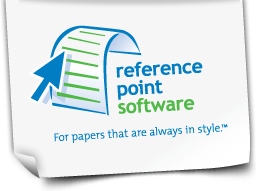Top 10 Mistakes When Writing a College Paper with APA Citations (Part 2)
Learning how to write an A-worthy college paper using APA citations can be challenging even for senior students who have experience with multiple writing assignments. It is a skill set you must learn along with the subject matter of your courses. This article is part 2 of a two part series. If you havenΓÇÖt read part 1 yet, you can find it at Top 10 Mistakes When Writing a College Paper Part 1 (Include a link to the article when it is posted on the branding site).
Here are the 5 additional common mistakes.
6. Lacking Organization
Great research alone does not make a great college paper. Strong organizational skills are critical for ensuring you gather enough quality data relevant for each section of your outline and the statements you make in support of your thesis. Before you start your research, create folders (electronically on your computer and physical files) so you can store the important data as it relates to the sections of your outline. Highlight the most important data and write notes in the margins on each page. If making notes in Microsoft Word click on the Review tab and click New Comment. By following this process, you will identify if your research is complete by reviewing each folder before you begin writing. You will save time referring back to the data when you write your paper, and you will simplify your process for adding in citations and creating your bibliography.
7. Not Writing in Paragraphs
Writing paragraphs for a college paper is different than some other forms of writing. In other forms of writing, you may see a one-sentence paragraph or a single over-sized block of a dozen sentences or more. Your college professor will expect to see well-constructed paragraphs containing four to five sentences, developing a small thought in the first sentence with three to four additional sentences supporting your thought. You canΓÇÖt construct a complete thought in one sentence. If you have eight or more sentences in your paragraphs, see if you can break them down into two concise paragraphs.
8. Relying on Your ComputerΓÇÖs Spell-Checker
Writing a strong college paper is a culmination of well-crafted statements, proper grammar, and precise spelling. It isnΓÇÖt a safe bet to rely solely on the Spelling & Grammar check on your word processor program. Many of these programs have flaws, like selecting the wrong ΓÇ£youΓÇÖreΓÇ¥ for ΓÇ£yourΓÇ¥. You can use the checker to expedite your editing, but always do a thorough read through of your paper before you submit it to your professor.
9. Not Writing Your Own Paper
There are a multitude of writing services promising you A-worthy, original papers for a few dollars. While the perceived time-saving and stress-relieving benefits may be tempting, donΓÇÖt buy a paper. Why not? First, you are cheating yourself out of your own education. Second, the papers are never 100% original nor of the quality (i.e. improper APA citation formatting) promised. Third, youΓÇÖre likely to get caught. Depending upon the terms of your schoolΓÇÖs honor code, you could get expelled.
10. Forgetting Proper Formatting
Your professors will usually provide you with specific guidelines for formatting your paper, whether using APA citations, MLA, or other formatting style. For example, the APA citations are different from those set by the Modern Language Association (MLA). You will lose points on your paper if you donΓÇÖt adhere to the proper formatting guidelines. Once you know what formatting standard you need to follow, you can research the latest rules and edit your paper accordingly or you can use software tools that will format your papers quickly and accurately.
David Plaut is the founder of Reference Point Software (RPS). RPS offers a complete suite of easy-to-use formatting template products featuring MLA and APA style templates, freeing up time to focus on substance while ensuring formatting accuracy. For more information, log onto http://www.referencepointsoftware.com/ or write to:
info @ referencepointsoftware.com
Reference Point Software is not associated with, endorsed by, or affiliated with the American Psychological Association (APA) or with the Modern Language Association (MLA).
